Whisky Galore! is a 1949 British comedy film produced by Ealing Studios starring Basil Radford, Bruce Seton, Joan Greenwood and Gordon Jackson. It was the directorial debut of Alexander Mackendrick; the screenplay was by Compton MacKenzie, based on his 1947 novel Whisky Galore. The story – based on a true event – concerns a shipwreck off a fictional Scottish island, the inhabitants of which have run out of whisky; the islanders find out the ship is carrying 50,000 cases of whisky, which they salvage, against the opposition of the local Customs and Excise men.
| Whisky Galore! | |
|---|---|
UK film poster | |
| Directed by | Alexander Mackendrick |
| Produced by | Michael Balcon |
| Written by | Compton MacKenzie Angus MacPhail |
| Based on | Whisky Galore by Compton MacKenzie |
| Starring | Basil Radford Bruce Seton Joan Greenwood Gordon Jackson |
| Music by | Ernest Irving |
| Cinematography | Gerald Gibbs |
| Edited by | Joseph Sterling |
Production company | Ealing Studios |
| Distributed by | General Film Distributors (UK) |
Release date |
|
Running time | 82 minutes |
| Country | United Kingdom |
| Language | English |
Like others of the Ealing comedies, Whisky Galore! explores the actions of a small insular group facing and overcoming a more powerful opponent. It was filmed on the island of Barra; the weather was so poor that the production over-ran its 10-week schedule by five weeks, and the film went £20,000 over budget. The initial cut of the film was considered poor by Michael Balcon, the head of the studio, so one of Ealing's directors, Charles Crichton, added additional footage and re-edited the film prior to its release.
Whisky Galore! was well-received on its release. It came out in the same year as Passport to Pimlico and Kind Hearts and Coronets, leading to 1949 being remembered as one of the peak years of the Ealing comedies. In the US, where Whisky Galore! was renamed Tight Little Island, the film became the first from Ealing Studios to achieve box office success. It was followed by a sequel, Rockets Galore!. Whisky Galore! has since been adapted for the stage, and a remake was released in 2016.
Screenplay
The inhabitants of the isolated Scottish island of Todday in the Outer Hebrides are largely unaffected by wartime rationing, until the supply of whisky runs out in 1943. Then gloom descends on the disconsolate natives. In the midst of this catastrophe, Sergeant Odd returns on leave to court Peggy, the daughter of the local shopkeeper Joseph Macroon. Meanwhile, Macroon's other daughter, Catriona, has just become engaged to a meek schoolteacher, George Campbell, although his stern, domineering mother refuses to give her approval.
During a storm, the freighter S.S. Cabinet Minister runs aground near Todday in heavy fog late one night and begins to sink. Two local inhabitants, the Biffer and Sammy MacCodrun, row out to investigate and learn from its departing crew that the cargo consists of 50,000 cases of whisky.
Captain Waggett, the stuffy English commander of the local Home Guard, orders Odd to guard the cargo, but Macroon casually remarks that, by long-standing custom, a man cannot marry without hosting a rèiteach in which whisky must be served. Taking the hint, the sergeant allows himself to be overpowered, and the locals manage to offload a large number of cases before the ship goes down. Campbell had been sent to his room by his mother for a prior transgression, but is persuaded to leave and assist with the salvage by MacCodrun. This proves fortunate, as Campbell rescues the Biffer when he is trapped in the sinking freighter. The whisky also fortifies the teetotal Campbell's courage enough so he can stand up to his mother regarding Catriona.
A battle of wits ensues between Waggett, who wants to confiscate the salvaged cargo, and the islanders. Waggett brings in Macroon's old Customs and Excise nemesis, Mr. Farquharson, and his men to search for the whisky, but the forewarned islanders manage to hide the bottles in various ingenious places, including ammunition cases which Waggett ships off-island. When this is discovered, Waggett is recalled to the mainland to explain himself, leaving the locals triumphant.
|
|
The film historians Anthony Aldgate and Jeffrey Richards describe Whisky Galore! as a progressive comedy because it upsets the established social order to promote the well-being of a community. Like other Ealing comedies, Whisky Galore! concerned the actions of a small insular group facing and overcoming a more powerful opponent. The film historian George Perry writes that in doing so the film examines "dogged team spirit, the idiosyncracies of character blended and harnessed for the good of the group". The device of pitting a small group of British against a series of changes to the status quo from an external agent leads the British Film Institute to consider Whisky Galore!, along with other of the Ealing comedies, as "conservative, but 'mildly anarchic' daydreams, fantasies".
Pre-production
Whisky Galore! was produced by Michael Balcon, the head of Ealing Studios; he appointed Monja Danischewsky as the associate producer. Danischewsky had been employed in the studio's advertising department, and Whisky Galore! was his first job in production. With the studio's directors all working on other products, Balcon and Danischewsky asked Ronald Neame to take the role, but he turned the offer down. A first-time director, Alexander Mackendrick, was chosen from within Ealing's workforce; he was employed as a production designer. The film was produced at the same time as Passport to Pimlico and Kind Hearts and Coronets; all three comedies were released into UK cinemas over two months.
The screenplay for Whisky Galore! was written by Compton Mackenzie and Angus MacPhail, based on Mackenzie's own novel; he received £500 for the rights to the book, and a further £1,000 because of the film's profitability. Mackendrick and Danischewsky also worked on the script before further input from the writers Elwyn Ambrose and Donald Campbell, and the actor James Robertson Justice, who also appeared in the film. The film and novel's story was based on an incident in the Second World War, when the cargo ship SS Politician ran aground off the north coast of Eriskay in the Outer Hebrides. Local inhabitants from the island, and from nearby South Uist, heard that the ship was carrying 22,000 cases of whisky; they rescued 7,000 from the wreck before it sank. Mackenzie, a Home Guard commander on the island, took no action against the removal of the whisky. The plot underwent some modification and condensation from the novel, with a lot of the background removed; in particular, much of the religious aspect of the novel was left out, with the novel's Protestant Great Todday and Roman Catholic Little Todday being merged into the single island of Todday.
The music for the film was composed by Ernest Irving, who had been involved in several other productions for Ealing Studios. Irving adapted themes from Scottish folk music to include in his compositions. Alastair Sim was offered a lead role within the film, but turned it down, to avoid being typecast as "a professional Scotsman".
In May 1950 the British Film Institute's monthly publication Sight & Sound estimated the film's budget to be around £100,000 (£3,337,000 in 2018 pounds). The following month, Balcon wrote to the magazine to complain that "Your estimate of the cost is wrong by more than a thousand or two". He also stated in his letter that the film "over-ran its budget by the unprecedented figure of 60 per cent to 70 per cent".
Filming
The film was shot on the island of Barra in 1948, with a unit of 80 staff from Ealing, although many of these were inexperienced because of filming by Ealing Studios on other works. The summer of 1948 brought heavy rain and gales, and the shoot ran five weeks over its planned 10-week schedule, and the film went £20,000 over budget (£667,000 in 2018 pounds). There was tension which led to disagreements between Danischewsky and Mackendrick during filming, including a difference of opinion concerning the moral tone of the film. Mackendrick sympathised with the pompous, high-minded, but spoilsport attempts of Waggett to foil the looting, while Danischewsky's sympathy lay with the islanders and their removal of the drink. Mackendrick later said: "I began to realise that the most Scottish character in Whisky Galore! is Waggett the Englishman. He is the only Calvinist, puritan figure – and all the other characters aren't Scots at all: they're Irish!"
Post-production
Balcon disliked the film and his initial thought was to cut its running time down to an hour and classify it as a second feature. He did not provide Mackendrick with another directoral role, but assigned him to second unit work. Another of Ealing's directors, Charles Crichton, added additional footage at Ealing Studios and re-edited the film; this version was the one released into cinemas.
Mackendrick was not satisfied with the final film, and thought it looked like an amateur work. Danischewsky later called the film "the longest unsponsored advertisement ever to reach cinema screens the world over"; the whisky producer The Distillers Company later presented those associated with the film a bottle of whisky each, given at a dinner at the Savoy Hotel, London.
Whisky Galore! was released into UK cinemas on 16 June 1949; the film was financially successful. It was released into the US in December that year, though because of restrictions on the use of the names of alcoholic drinks in titles, the film was renamed Tight Little Island. In France, the film was retitled Whisky à gogo; the name was later used as that of a discothèque in Paris.
Critics warmly praised Whisky Galore! on its release. The reviewer C. A. Lejeune, writing in The Observer, considered it "a film with the French genius in the British manner", while the reviewer for The Manchester Guardian thought the film was "put together with ... tact and subtlety", and Henry Raynor, in his review for Sight & Sound magazine, called it "one of the best post-war British films". Several critics identified the script as excellent, and the reviewer for The Manchester Guardian thought that the main credit for the film should be given to Mackenzie and MacPhail for the story.
Request Movie Now
Watch movie Whisky Galore! 1949 Film online on Amazon
Watch movie Whisky Galore! 1949 Film online
Watch The Movie On Prime
Do Qaidi Full HD Movie Download
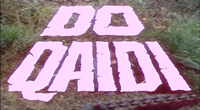
Junglee Full HD Movie Download
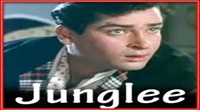
Sunehre Din Full HD Movie Download
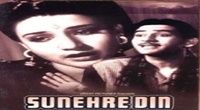
Namak Haram Full HD Movie Download
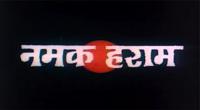
Aagey Se Right Full HD Movie Download

Ghazab Full HD Movie Download

Abhinetri Full HD Movie Download
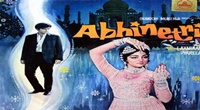
Loafer (1973) Full HD Movie Download
.jpg)
Insaaniyat (1955) Full HD Movie Download
.jpg)
Karisma Kali Ka Full HD Movie Download
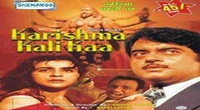
Allari Premikudu Full HD Movie Download
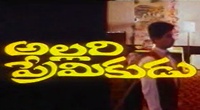
Sakhiya Full HD Movie Download
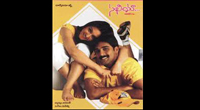
Ayyapa Swami Janma Rahasym Full HD Movie Download
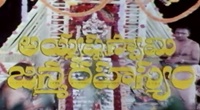
Harry Potter and the Order of the Phoenix Full HD Movie Download

Oceans Thirteen Full HD Movie Download

Vanitha Police Full HD Movie Download

Devi Parasakthi Full HD Movie Download
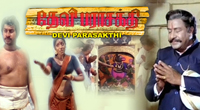
Dharmam Thalai Kaakkum Full HD Movie Download
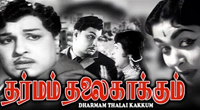
Mee Kosam Full HD Movie Download
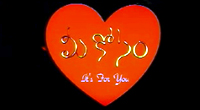
Sahasa Baludu Vichitra Koti Full HD Movie Download

Aaja Nachle Full HD Movie Download


Download latest Movie from bollywood
Request for Download movie Whisky Galore! 1949 Film
- Bollywood movies
- Latest Bollywood movies
- Download all bengali movies
- Download all bhojpuri movies
- Download all english movies
- Download all gujarati movies
- Download all hindi movies
- Download all kannada movies
- Download all malayalam movies
- Download all marathi movies
- Download all oriya movies
- Download all punjabi movies
- Download all tamil movies
- Download all telugu movies
- Bollywood action movies
- Bollywood adventure movies
- Bollywood animation movies
- Bollywood classical movies
- Bollywood comedy movies
- Bollywood crime movies
- Bollywood devotional movies
- Bollywood documentary movies
- Bollywood drama movies
- Bollywood family movies
- Bollywood fantasy movies
- Bollywood historical movies
- Bollywood history movies
- Bollywood horror movies
- Bollywood musical movies
- Bollywood mystery movies
- Bollywood mythological movies
- Bollywood patriotic movies
- Bollywood romance movies
- Bollywood romantic movies
- Bollywood sci-fi movies
- Bollywood social movies
- Bollywood spiritual movies
- Bollywood sports movies
- Bollywood suspense movies
- Bollywood thriller movies
- Bollywood war movies
- Hot actress list
- Hot gujarati actress list
- Hot tamil actress list
- Hot bhojpuri actress list
- Hot assam actress list
- Hot bihari actress list
- Hot jammu and kashmir actress list
- Hot gujarati actress list
- Hot haryana actress list
- Hot konkani actress list
- Hot marathi actress list
- Hot odia actress list
- Hot punjabi actress list
- Hot rajasthani actress list
- Hot kannada actress list
- Hot malayalam actress list
- Hot telugu actress list
- Hot tulu actress list
- Hot Actress list from Indian city
- Hot actress list from ahmedabad
- Hot actress list from alappuzha
- Hot actress list from bangalore
- Hot actress list from bangalore
- Hot actress list from bhopal
- Hot actress list from chandigarh
- Hot actress list from chennai
- Hot actress list from guwahati
- Hot actress list from hyderabad, india
- Hot actress list from indore
- Hot actress list from jaipur
- Hot actress list from kannur
- Hot actress list from kochi
- Hot actress list from kolkata
- Hot actress list from kollam
- Hot actress list from kottayam
- Hot actress list from kozhikode
- Hot actress list from lucknow
- Hot actress list from madurai
- Hot actress list from mangalore
- Hot actress list from mumbai
- Hot actress list from mysore
- Hot actress list from new delhi
- Hot actress list from patna
- Hot actress list from pune
- Hot actress list from thiruvananthapuram
- Hot actress list from thrissur
- Hot actress list from tiruchirappalli
- Hot actress list from vijayawada
- Hot actress list from visakhapatnam
- All Bollywood Movies
- Bollywood Celeb
- >Art Director
- >Audiography
- >Background Music
- >Banner
- >Choreographer
- >Cinematographer
- >Costume Designer
- >Dialogue Writer
- >Director
- >Distributor
- >Editor
- >Executive Producer
- >Hair Stylist
- >Lyricist
- >Music Director
- >Photographer
- >Playback Singers
- >Presenter
- >Producer
- >Production Company
- >Production Designer
- >Screenplay
- >Singer
- >Sound
- >Actor
- >Story Writer
- >Studio
- >Video Director
- >Miscellaneous
- >Publicity (pro)
- >Web Creator
- >Production Labs
- >Publicity Design
- >Publicity Stills
- >Writer
- >Miscellaneous Artists
- >Visual Effects
- >Reporter
- >Music Company
- >Shooting Studios
- >Picturised On
- >Line Producer
- >Co Producer
- >Asst Director
- >Casting Director
- >Cinematography
- >Choreography
- >Dialouge
- >Editing
- >Lyrics
- >Music
- >Story
- >Playback Singer Female
- >Playback Singer Male
- >Actor In A Comic Role (male/female)
- >Child Artiste
- >Ensemble Cast
- >Actor Popular Choice (male)
- >Actor Popular Choice (female)
- >Sa Re Ga Ma Pa Song Of The Year
- >Actor In Supporting Role
- >Actress In Supporting Role
- >Actor In Leading Role
- >Art Direction
- >Actress In Leading Role
- >Sound Recording
- >Costume Design
- >Special Effects
- >Action
- >Actor In A Negative Role
- >Lifetime Achievement Award
- >Cinematic Exellence (director)
- >Cinematic Exellence (male)
- >Cinematic Exellence (female)
- >International Male Icon
- >International Female Icon
- >Actor In A Supporting Role (male)
- >Actor In A Supporting Role (female)
- >Actor In A Comic Role
- >Playback Singer (male)
- >Playback Singer (female)
- >Most Promising Debut (female)
- >Most Promising Debut (male)
- >Most Promising Director
- >Sound Design
- >Lifetime Jodi
- >Marketed Film
- >Jury Award For Best Actor
- >Jury Award For Best Actress
- >Jury Award For Best Film
- >Jury Award For Best Director
- >Playback Singer(male)
- >Lifetime Acheivement Award (male)
- >Excellence Award
- >Jodi Award
- >Performer Of The Year
- >Presented By
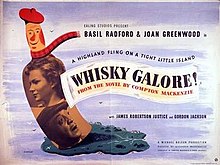 Story of movie Whisky Galore! 1949 Film :
Story of movie Whisky Galore! 1949 Film :